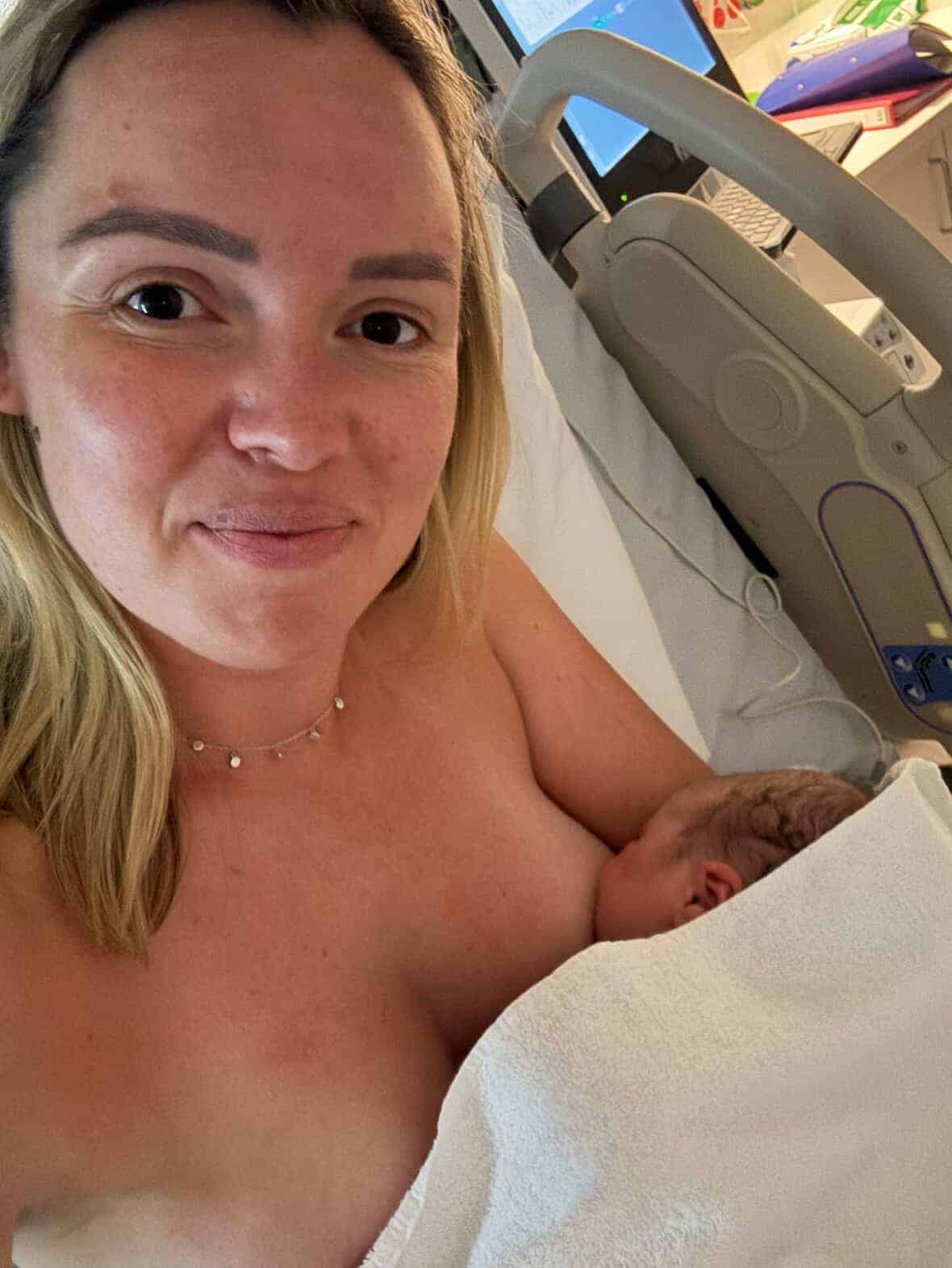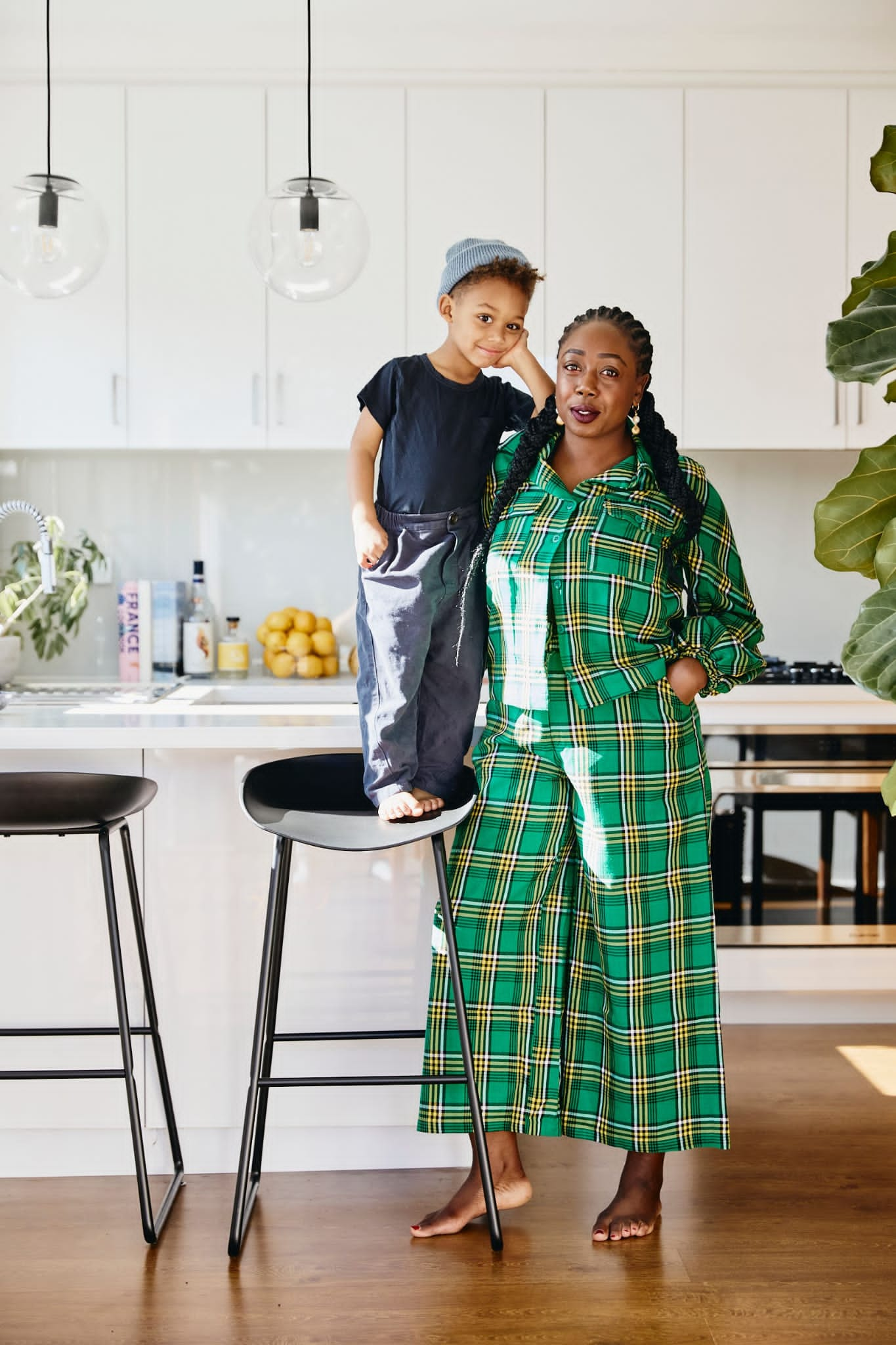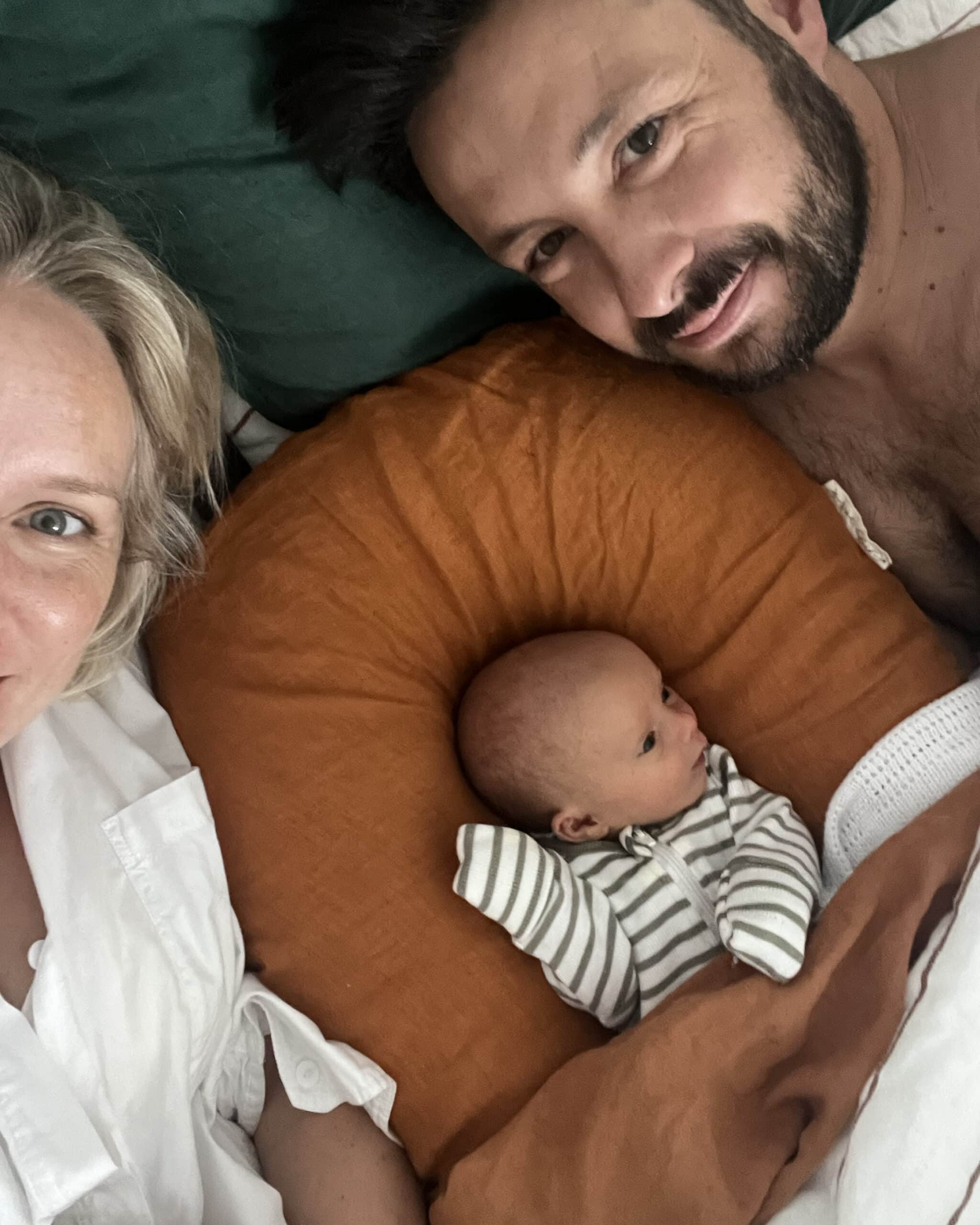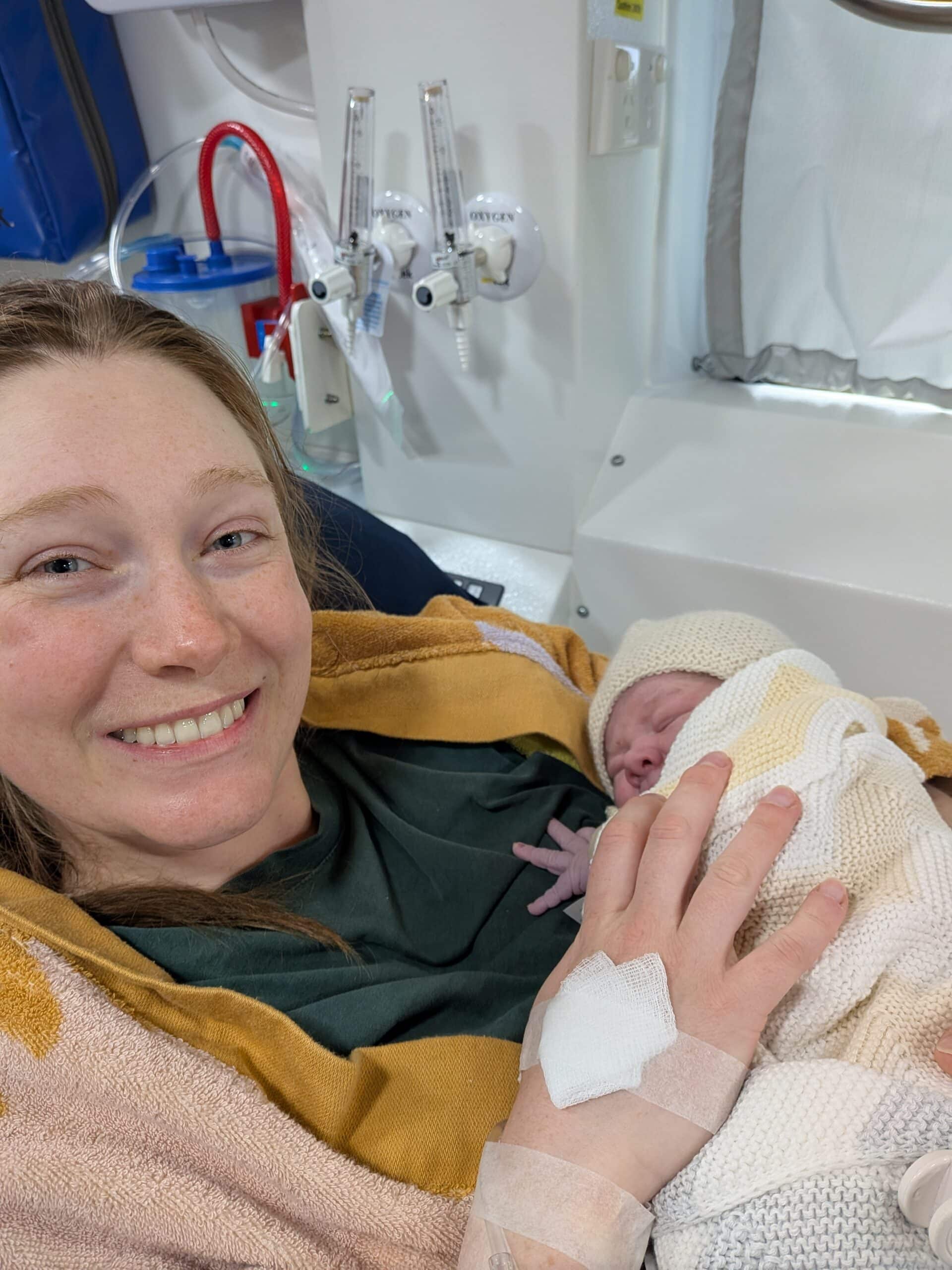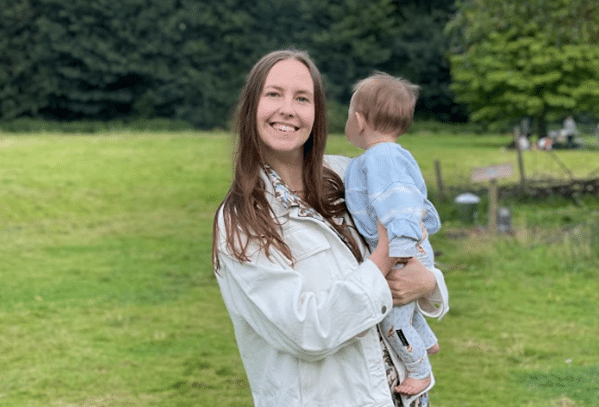Podcasts Lisa – two births, hyperemesis gravidarum, COVID lockdown, induction, egg donation, physiological birth
EPISODE 558
Lisa – two births, hyperemesis gravidarum, COVID lockdown, induction, egg donation, physiological birth
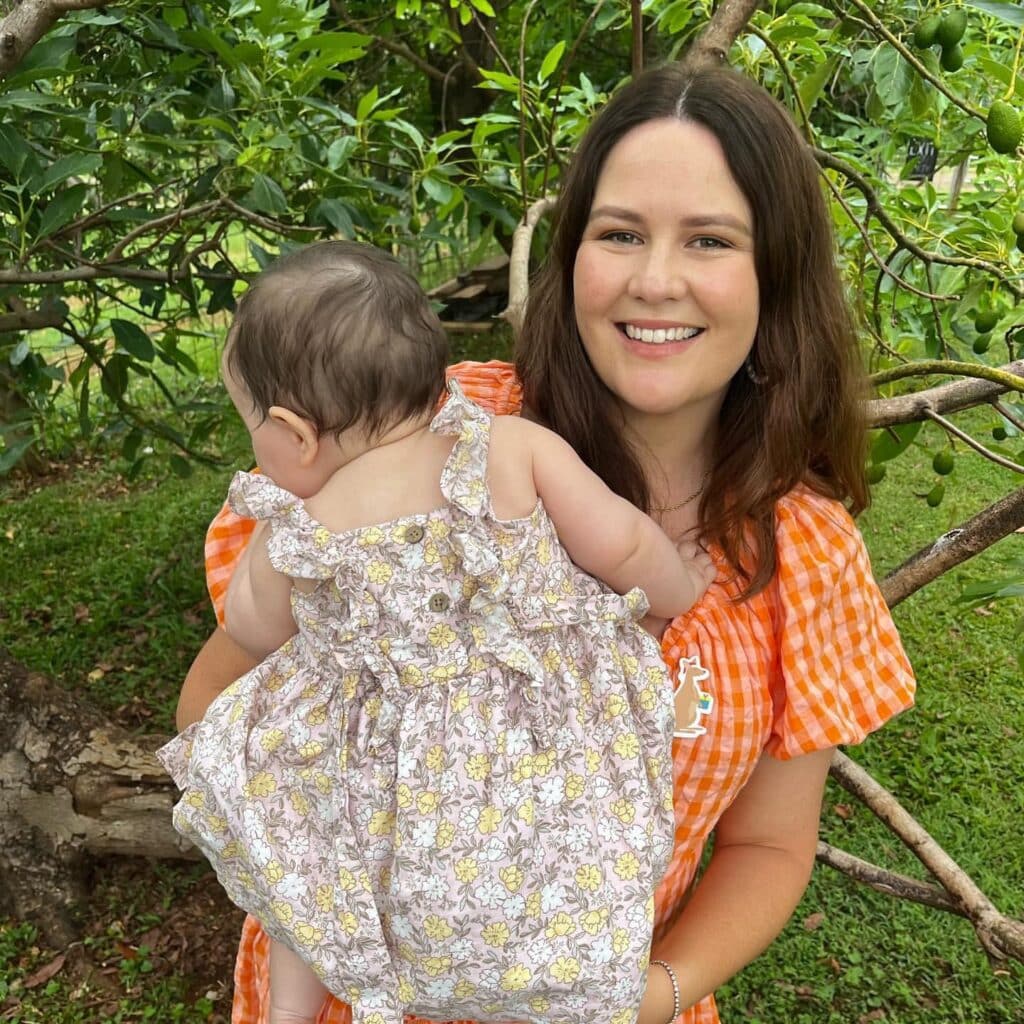
Lisa’s journey to motherhood began during the unprecedented challenges of COVID-19. After discovering low AMH levels and feeling ready to start a family during lockdown, she conceived immediately with her first daughter, August. However, what followed was a gruelling battle with hyperemesis gravidarum that lasted until 20 weeks. “I was one of those people testing like five days before you can test and just thinking I was pregnant every time,” Lisa recalls of her conception journey. The reality of severe morning sickness hit hard: “It wasn’t just sort of nausea. It became all day vomiting. And I couldn’t eat anything.”
The isolation of COVID lockdowns compounded the physical challenges significantly. “I was quite depressed experiencing hyperemesis, I think in conjunction with being in lockdown. So not being able to access community or my other friends who recently become mothers. And yeah, I was in a really low place.” Lisa’s experience highlights the critical importance of having a supportive GP who provided a clear care plan: “She gave me a care plan that I could sort of step up and ramp up myself. So she sort of gave me, this is if you’re having like a good day, but still feeling a bit nauseous, and I felt really confident with what she’d written out for me.”
Despite the challenges, Lisa secured a place in the Midwifery Group Practice at the Royal Hospital in Randwick, thanks to her midwife sister’s advocacy. “I feel really fortunate that I was able to get into the midwife group practice and I only have my sister to thank for that… even though I wish it was the standard for everyone to have access to that if they wanted to.” Her midwife was also pregnant, creating a unique bond: “She was really fantastic. She actually, herself was pregnant, so, it was just kind of nice to kind of be going through… even though she was a midwife yeah, going through this together.”
At 38 weeks, Lisa faced the decision to be induced due to concerns about her baby’s size and hospital capacity constraints. Reflecting on this decision, she admits: “I was again, really naive to what actually can happen from an induction… I was just so eager to begin my life as a mother and get this baby out and just not be pregnant anymore.” The induction process proved challenging, beginning with cervadil and progressing through a difficult night of contractions while separated from her partner due to COVID restrictions. “It was quite a lonely experience. ’cause my husband did have to leave I think at like six or 7:00 PM that night. So when things were really starting to kick off… I was in this dark room with another woman separated by a curtain.”
Lisa’s first birth became increasingly complex, involving an epidural that left her “truly numb from the neck down,” followed by her daughter’s heart rate dropping significantly. The situation escalated quickly: “They sort of then brought in the doctors, they were gonna prep me to take me in for emergency Caesar and my midwife just said, look, can we just see if she can push?” The birth culminated with forceps delivery and her daughter requiring immediate respiratory support. “I was truly, I was, I think now looking back, disassociating a little bit, I wasn’t. I don’t think I was really able to make any judgment calls. I was really feeling out of it.”
Her partner’s perspective added another layer of trauma to the experience: “He thought I was dying… I remember, I think it was probably a week or two postpartum and he felt really distant from me… he said, I thought I was losing you.” The immediate postpartum period proved equally challenging, with Lisa experiencing inadequate breastfeeding support in an overwhelmed hospital system. “I was in a dark room for seven hours, still in the bloody sheets that I gave birth in with no support to help with breastfeeding.”
The first six weeks were marked by cluster feeding, sleep deprivation, and mounting self-doubt. “I thought, is this what everyone has been through? And I’m just, you know, the self-doubt, it didn’t take long for that to creep in.” Lisa’s experience illustrates the critical importance of postpartum mental health support: “I will never stop talking about how important it is for women to access great mental health services postpartum. And how that can just make such a huge difference to your experience.”
A turning point came through a lactation consultant who provided both practical help and emotional support: “She just came in and gave me a hug and she said a complete stranger. She was just warm and she just said, you’re doing great.” The consultant’s homework assignment proved particularly powerful: “You’ve gotta go out and do a breastfeed in public once a day… And that just kind of clicked me into living again and living in my new role and feeling confident and comfortable as a mother.”
Between her two pregnancies, Lisa made the extraordinary decision to donate eggs to her sister after witnessing “10 rounds of failed IVF.” This selfless act, requiring extensive counselling and consideration of her own daughters’ future understanding, ultimately resulted in her niece’s birth. “I want my girls to grow up knowing what it means to give and be selfless and to love wholeheartedly in this world,” Lisa explains. The counselling process ensured all parties were prepared: “We did extensive counselling beforehand. Not only because that is actually a mandate when you go through this type of process through IVF, but also my sister and I wanted to really make sure that we were all on the same page.”
Lisa’s second pregnancy brought a stark contrast to her first experience. Without hyperemesis gravidarum but facing the challenges of toddler illnesses, she approached this birth with significantly more knowledge and agency. “I felt so much stronger, so much more informed this time around. And I think the through line, always through my pregnancy was that I really wanted to, until the bitter end, try and go into labour spontaneously.” This time, Lisa created comprehensive birth plans and advocated strongly for her preferences. When faced with potential induction at 41 weeks, she “got to work” ensuring spontaneous labour through four stretch and sweeps.
Her waters breaking at home provided the natural start she’d hoped for: “It felt really nice to have my waters break in the kitchen of our family home while I’m feeding my toddler dinner. It was just kind of like a beautiful chaos to it.” Despite not achieving her desired water birth due to prolonged rupture of membranes, Lisa’s second birth proved transformative. With an epidural that allowed mobility, she birthed in an upright position “with a lot of help from gravity.”
“I think it was two, two pushes and she was out and it was, the sun was coming up and it was healing and perfect and beautiful in every way… a room filled with so much love and support and humour, which was everything that I wanted it to be.” Her partner’s experience was markedly different this time: “I think he definitely felt the presence of a much more positive environment this time around,” though Lisa laughs about his nervous repetition of “you’ve got this mama” throughout the labour.
Lisa’s experiences fundamentally changed her career focus from entertainment journalism to women’s health advocacy: “Having gone through what I went through, I was so drawn then to women’s health and telling those sorts of stories and I couldn’t really see anything else that I wanted to do with my life outside of motherhood except for help advocate for women.” Her work now includes advocating for fair wages for midwives and nurses, using her platform to spotlight healthcare issues: “If there’s a way that I can spotlight those issues and highlight them, it’s my way of repaying all these incredible healthcare workers who helped me throughout various points in my pregnancy and birthing experiences.”
Lisa’s journey offers several crucial insights for expectant parents. The importance of informed consent in birth decisions, particularly regarding induction, cannot be overstated. Her experience demonstrates that postpartum mental health support is essential and should be proactively sought, whilst showing that birth experiences can be healing when approached with knowledge and support. Professional support systems including lactation consultants and mental health professionals proved invaluable in her recovery and growth as a mother.
Perhaps most importantly, Lisa’s story demonstrates that whilst birth can be unpredictable and sometimes traumatic, with proper support, advocacy, and healing, subsequent experiences can be profoundly positive and transformative. Her evolution from a naive first-time mother to an informed advocate illustrates the power of knowledge, preparation, and surrounding oneself with the right support team. For midwives, doulas, and expectant mothers, Lisa’s story serves as both a cautionary tale about the importance of informed decision-making and a hopeful reminder that healing and empowerment are possible, even after difficult experiences.
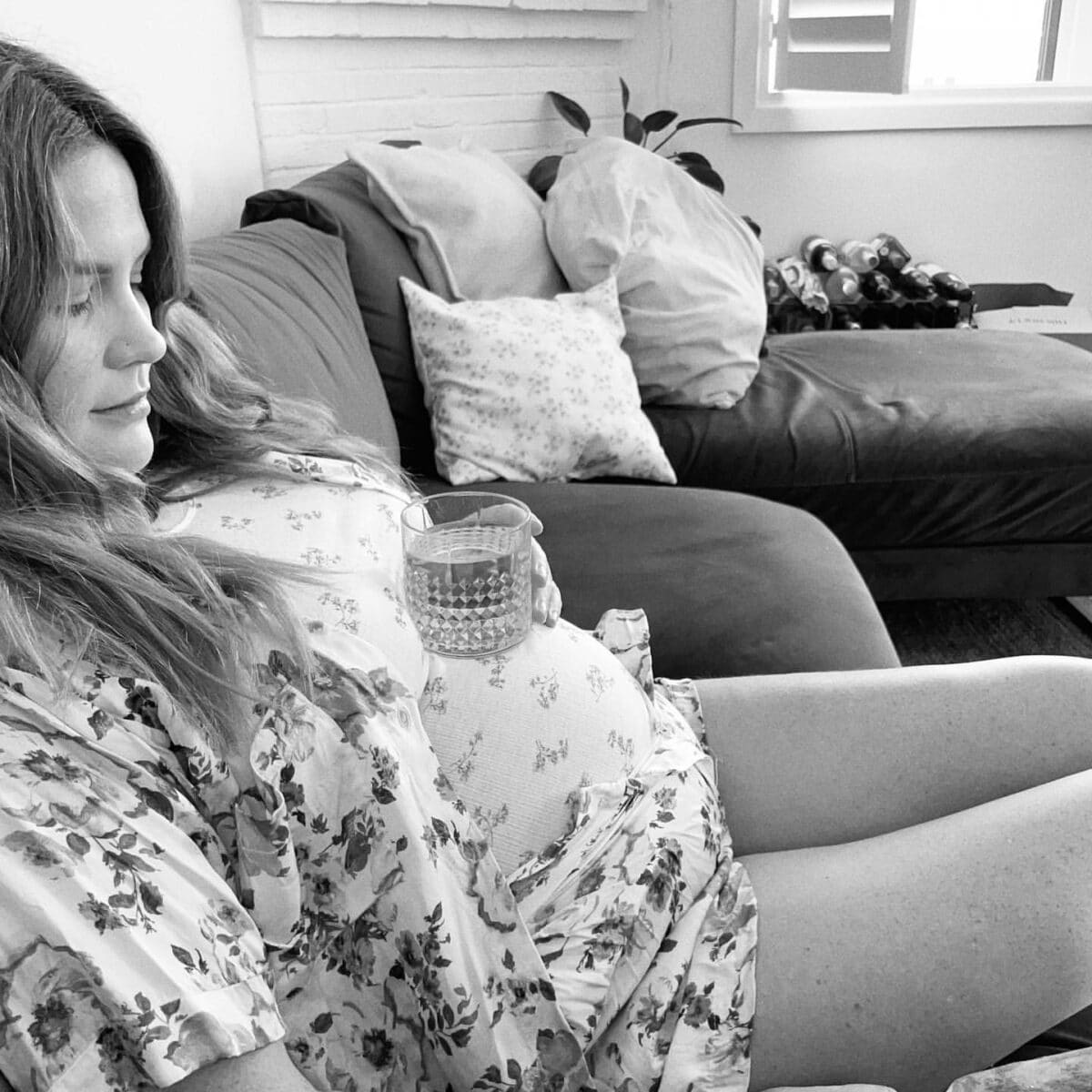
Topics Discussed
Covid lockdown, egg donation, Hyperemesis Gravidarum (HG), Induction, Physiological birth, Two births
Categories
Related Products
-
Birth Meditations
$49.00Narrated by Sophie Walker, these soothing and informative meditations help you feel supported and confident around birth.
Join the conversation
Sign up to get the latest updates, freebies, podcast releases straight into your inbox
@AustralianBirthStories
Follow along with us
@AustralianBirthStories
Follow along with us
@AustralianBirthStories
Follow along with us
@AustralianBirthStories
Follow along with us
@AustralianBirthStories
Follow along with us
@AustralianBirthStories
Follow along with us
@AustralianBirthStories
Follow along with us
@AustralianBirthStories
Follow along with us
@AustralianBirthStories
Follow along with us
@AustralianBirthStories
Follow along with us
@AustralianBirthStories
Follow along with us
@AustralianBirthStories
Follow along with us

